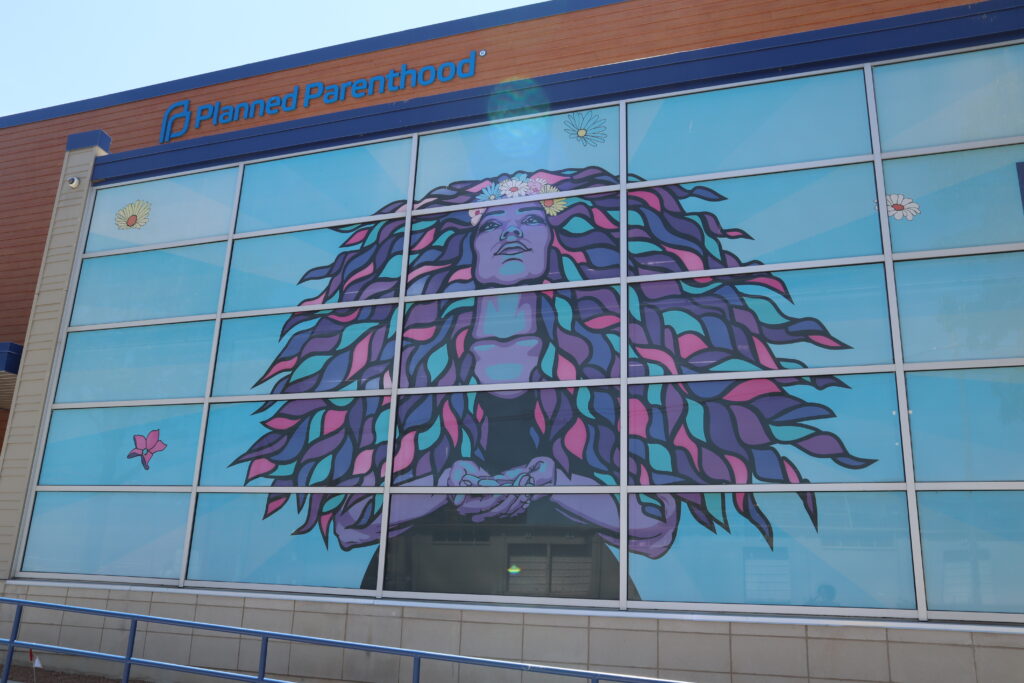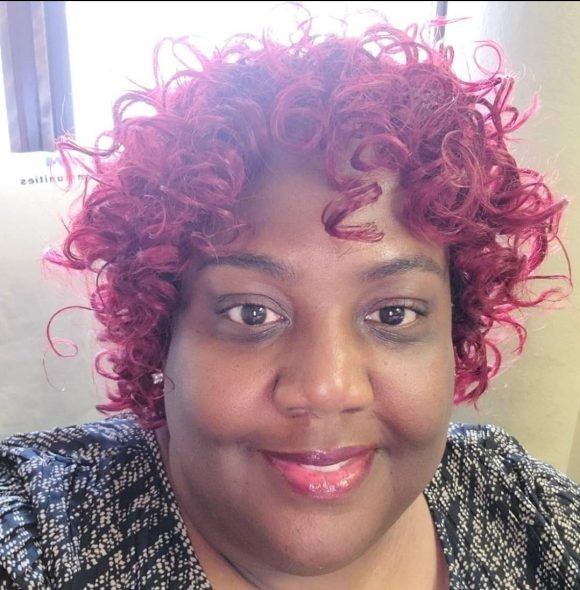Clinician Says Abortion Ruling Hurts Patients in Poverty
A Milwaukee clinician said her patients are "already at a disadvantage."

A Milwaukee Planned Parenthood clinic. Stephanie Findley turned to the organization for help when she needed an abortion as a young mother; she says overturning Roe v. Wade will have the hardest impact on people in poverty and people of color. Photo by Isiah Holmes/Wisconsin Examiner.
On Milwaukee’s North Side, Stephanie Findley operates a clinic that serves uninsured and under-insured residents of the community, many of them people of color.
Her patients, she says, will be among those most drastically affected by Friday’s U.S. Supreme Court ruling overturning Roe v. Wade and stripping away the federally recognized right to abortion.
“They’re already at a disadvantage,” Findley says. “And if you already have individuals that are at a disadvantage, and the playing field has not been leveled, then of course, this will impact them greatly.”
Even before the decision came out on Friday, women of color, especially low-income women, had less access to abortion because of their limited access to resources, she observes.
“There’s so many different scenarios, and we deal with them every day at the clinic,” Findley says. “It’s a very emotional time for a woman to determine whether she’s going to carry a baby to term or whether she’s going to terminate … a woman does not come to that decision lightly.”
She calls abortion rights a health equity issue, and sees the ability to choose when to have children and when not to as directly related to whether women and their families can escape poverty.
“A lot of these women are in poverty, and they’re trying to live their way out of poverty,” she says. Those who would outlaw abortion “have basically told them to pull themselves up by their bootstraps — and a lot of them don’t even own bootstraps to pull themselves up with.”
At her clinic, “yes we offer birth control, yes we offer condoms,” she says. “But guess what? Nothing is 100% effective.”
Economic need isn’t the only reason women choose to terminate a pregnancy, she adds. “I think about the women who are raped — they don’t have any recourse in this situation but to carry a rapist’s baby and give birth.” Under Wisconsin’s 1849 felony abortion ban, there are no exceptions for survivors of rape and incest. Sexual assault coupled with a forced pregnancy, Findley says, is “just too much trauma for one woman to have to deal with.”
Findley’s commitment to freedom of choice is rooted in her own experience.
“So this is a very personal and emotional time for me as I think about the families who are going to have to make similar decisions, but now they don’t have the resources,” Findley says. “I worry about women having to go back to back-alley practices. We don’t know to what extremes a woman [will go with] her back up against the wall, and what she will and will not be able to do because she can’t make her way out of a situation, because she feels entirely isolated and alone.”
Since word of the pending decision leaked nearly two months ago, Findley has heard from patients concerned about their options in the event that they need to terminate a pregnancy.
She’s also heard from women who told her they deleted the smartphone apps they used to track their menstrual periods, since they were unsure who might be collecting the data and how it might be used to police their pregnancies.
“There’s tons of women who have called or texted to say, ‘We are deleting this app because we’re fearful if we miss a period, somebody may come knock at our door,’” Findley says.
“They gaveled in and they gaveled out,” she says. “I just think that they are complete cowards for allowing women to go without having some sort of law [protecting the right to abortion], even for those who have been raped” or are victims of incest.
Findley is working with groups that raise funds to help women travel out of state to get abortions legally.
In her view, the justices who voted to overturn Roe were careless about the emotional impact of their ruling.
“They’re not even thinking about the trauma that this will cause to some of the women who are dealing with some of these issues,” Findley says, whether their choice arises from economic necessity, their personal health or any other reason. “The choice has been taken from them.”
Doctor says her patients who live in poverty will be hardest hit by high court abortion ruling was originally published by the Wisconsin Examiner.
UPDATE: An earlier version of this article identified Findley as a doctor. She holds a PhD in behavioral health.
More about the Overturning of Roe v. Wade
- New Report Details Post-Roe Abortions in Wisconsin - Sarah Lehr - Jul 24th, 2025
- Three Years After the Dobbs Decision, Wisconsin Republicans are Still Trying to Ban Reproductive Freedom - Democratic Party of Wisconsin - Jun 24th, 2025
- On 3rd Anniversary of Roe Being Overturned, Baldwin, Blumenthal, and Murray Lead Senate Dems in a Bill to Restore Abortion Access Nationwide - U.S. Sen. Tammy Baldwin - Jun 24th, 2025
- Support for Abortion Rights Remains Strong in Wisconsin on Third Anniversary of MAGA U.S. Supreme Court Justices Overturning Roe v. Wade - A Better Wisconsin Together - Jun 24th, 2025
- MAGA Wisconsin GOP Pushed to Restrict IVF Access, Reproductive Freedom - Democratic Party of Wisconsin - Feb 27th, 2024
- Families Are Losing Access to IVF Because of Donald Trump - Democratic Party of Wisconsin - Feb 23rd, 2024
- Planned Parenthood Seeks Wisconsin Supreme Court Ruling On Abortion - Hope Kirwan - Feb 22nd, 2024
- PPWI Asks Wisconsin Supreme Court to Protect Abortion Rights - Planned Parenthood of Wisconsin - Feb 22nd, 2024
- Wisconsin Democrats on Donald Trump’s National Abortion Ban - Democratic Party of Wisconsin - Feb 16th, 2024
- How Did Dobbs Decision Affect State’s Birth Rate? - Bridgit Bowden - Jan 2nd, 2024
Read more about Overturning of Roe v. Wade here




















